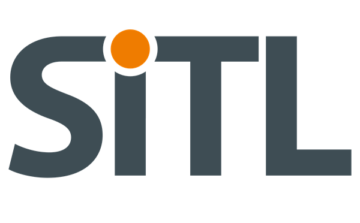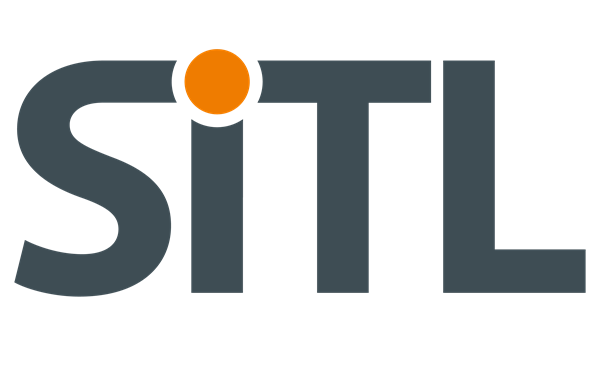Les solutions présentées par Jungheinrich France à la SITL 2023
Automatisation, durabilité et maîtrise énergétique pour répondre aux enjeux de la logistique
Alain Ferrand présente les dernières innovations de Jungheinrich France en matière d’optimisation énergétique, de robots mobiles, de gerbeurs et de chariots à mât rétractable écoconçus dans cette interview exclusive avec SITL Daily. Les principales tendances du secteur de la chaîne d’approvisionnement et de la logistique, ainsi que les actions de Jungheinrich pour promouvoir la durabilité sont également abordées.
Quelles sont les solutions que Jungheinrich France présente à SITL 2023 ?
L’automatisation, la durabilité et la maîtrise énergétique sont les marqueurs de Jungheinrich et un enjeu fort pour les entrepôts logistiques. Nous présentons sur cette SITL 2023 nos dernières innovations sur ces thématiques, avec notamment un pôle dédié à l’optimisation énergétique, particulièrement importante dans le cadre de la mise en application du décret Eco-Energie Tertiaire, mais également la présentation de nos robots mobiles, ainsi que nos derniers modèles de gerbeurs et chariots à mât rétractable écoconçus de la gamme Powerline. Enfin, un temps fort était la conférence tenue à la SITL hier sur le thème Entrepot & automatisation : comment conjuguer ROI et résilience ?
De façon plus détaillée, nous présentons sur notre stand le robot mobile EKS 215a, qui intègre les dernières évolutions souhaitées par nos clients. Basé sur les composants éprouvés de nos chariots manuels, il est “né robot mobile” : plus compact pour s’intégrer facilement dans les environnements existants, très simple à prendre en main avec son grand écran, polyvalent pour répondre à de nombreuses applications, mais aussi très simple à mettre en service dans des flux existants dans un environnement ouvert, sans compromis sur la sécurité.
Nous présentons également notre simulateur de conduite en réalité virtuelle qui permet de former au métier de cariste de façon ludique et innovante, ce qui attire particulièrement les jeunes générations. Un argument de poids face à la pénurie de main-d’œuvre dans le secteur de la logistique. Ce simulateur modélise le fonctionnement de nombreux chariots Jungheinrich (frontal, rétractable et même tridirectionnel) et permet aussi de reproduire fidèlement l’environnement de travail des futurs caristes pour les préparer à leur métier. Enfin, nous présentons notre nouveau chariot à mât rétractable grande hauteur (jusqu’à 14m) qui fait partie de notre nouvelle gamme Powerline qui désigne les modèles de chariots dont le design a été entièrement pensé, dès leur conception, autour des batteries lithium-ion. Ils sont ainsi bien plus agiles et encore plus respectueux de l’environnement (décarbonation de la production et compensation du transport).
Quelles sont les principales tendances qui façonnent l’industrie de la chaîne d’approvisionnement et de la logistique ?
Chez Jungheinrich, nous observons trois tendances majeures qui impactent la chaîne d’approvisionnement et la poussent à s’organiser pour plus de résilience, de flexibilité et de durabilité.
La première est la permanence du changement et le monde “VUCA” (volatility, uncertainty, complexity, ambiguity). De nouvelles habitudes de consommation impactent les modes de distribution. Des événements comme la pandémie de Covid-19, le blocage du canal de Suez ou la guerre en Ukraine remettent en cause l’organisation des chaînes d’approvisionnement. Plus récemment, les tensions sur le marché de l’emploi impactent la croissance de nombreuses entreprises faute de disposer de la main-d’œuvre qualifiée nécessaire, ou encore les préoccupations environnementales qui génèrent des tensions sur la disponibilité du foncier pour la construction de nouveaux entrepôts. Le monde change de plus en plus vite, avec toujours plus d’intensité.
Ensuite, le choc inflationniste que nous connaissons, avec l’explosion des coûts énergétiques, limite les capacités d’investissement et renforce les exigences de ROI des directeurs logistiques. L’optimisation des chaînes d’approvisionnement a fait place à la flexibilité, et même la résilience.
Enfin, il y a l’enjeu de la data. Les directeurs de chaîne d’approvisionnement ont à leur disposition des quantités de données toujours plus importantes, dont la bonne exploitation est un enjeu clé dans l’optimisation de la chaîne d’approvisionnement, mais aussi un outil incontournable d’aide à la décision.
Vous avez récemment reçu le prix Platinum d’EcoVadis pour la deuxième fois. Comment Jungheinrich promeut-il la durabilité ?
Effectivement, pour la deuxième année consécutive, nous sommes certifiés Platinum par EcoVadis. L’agence de notation a examiné plus de 100 000 entreprises dans le monde et seules les 1 % les plus durables d’entre elles se voient décerner le certificat Platinum. Ce qui rend hommage à nos performances.
Le développement durable se traduit chez nous par bien des aspects : la durabilité de nos produits et de nos solutions, notre approche en matière d’économie circulaire avec le reconditionnement 5 étoiles de nos chariots qui permet l’économie de plus de 80% de CO2 par rapport à la production d’un chariot neuf, la décarbonation de notre système de production avec, par exemple, l’économie de plus de 15 000 tonnes de CO2 par an grâce à l’utilisation d’électricité verte pour nos usines de production. C’est également la sécurité des collaborateurs Jungheinrich et la parité homme-femme au sein de notre entreprise, avec un index égalité professionnelle entre les hommes et les femmes qui est de 92/100 cette année pour Jungheinrich France.
Quels sont les projets de Jungheinrich pour 2023 ?
En 2023, nous prévoyons de lancer de nouveaux produits qui continueront à transformer la Supply Chain. Nous resterons fidèles à nos convictions en matière d’e-mobilité, d’automatisation et de digitalisation, et continuerons à accompagner les dirigeants d’entreprise pour une intralogistique plus agile et résiliente.
Pourquoi est-il important pour Jungheinrich et les autres acteurs de l’industrie de se rencontrer à la SITL ?
La SITL est un événement clé pour présenter nos dernières innovations, mais c’est aussi un moment fort pour rencontrer et échanger avec les acteurs de la Supply Chain.
Stand: J039, D125
Solutions presented by Jungheinrich France at SITL 2023
Automation, sustainability and energy management to meet the challenges of logistics
Alain Ferrand presents Jungheinrich France’s latest innovations in energy optimisation, mobile robots, stackers and eco-designed reach trucks in an exclusive interview with SITL Daily. Key trends in the supply chain and logistics industry are also discussed along with Jungheinrich’s efforts to promote sustainability.
What solutions is Jungheinrich France presenting at SITL 2023?
Automation, sustainability and energy management are the hallmarks of Jungheinrich and a major challenge for logistics warehouses. At SITL 2023, we will be presenting our latest innovations in these areas, including a section dedicated to energy optimisation which is particularly important in the context of the implementation of the Eco-Energy Tertiary Decree. We will also be presenting our mobile robots as well as our latest models of eco-designed stackers and reach trucks from the Powerline range. A final highlight was the conference held at SITL yesterday on the theme of Warehouse & Automation: how to combine ROI and resilience?
In further news, we are presenting the EKS 215a mobile robot at our stand which incorporates the latest developments requested by our customers. Based on the proven components of our manual trucks, it is “born a mobile robot” which is more compact to fit easily into existing environments, very easy to handle with its large screen, versatile to meet many applications, but also very easy to commission in existing flows in an open environment, without compromising on safety.
We are also presenting our virtual reality driving simulator, which provides forklift driver training in a fun and innovative way, which is particularly attractive to the younger generation. This is a strong argument in view of the labour shortage in the logistics sector. The simulator models the operation of various Jungheinrich forklifts (front-loader, reach truck and even three-way truck) and also enables the working environment of future forklift drivers to be faithfully reproduced in order to prepare them for their profession. Finally, we are presenting our new high reach truck (up to 14m) which is part of our new Powerline range, which designates truck models that have been entirely conceived around lithium-ion batteries. This makes them much more agile and even more environmentally friendly (thanks to the decarbonisation of production and compensation for transport).
What are the main trends shaping the supply chain and logistics industry?
At Jungheinrich, we see three major trends impacting the supply chain and pushing it to organise itself with greater resilience, flexibility and sustainability.
The first is the permanence of change and the “VUCA” (volatile, uncertain, complex, ambiguous) world. New consumer habits are impacting distribution patterns. Events such as the Covid-19 pandemic, the blocking of the Suez Canal or the war in Ukraine are challenging the organisation of supply chains. More recently, tensions in the labour market have impacted the growth of many companies due to a lack of skilled labour. While environmental concerns are putting pressure on the availability of land for the construction of new warehouses. The world is changing faster and faster, and with increasing intensity.
Secondly, the inflationary shock we are experiencing, with the explosion of energy costs, is limiting investment capacity and increasing the ROI requirements of logistics managers. Supply chain optimisation has given way to flexibility, and even resilience.
Finally, there is the issue of data. Supply chain managers have ever increasing amounts of data at their disposal, the proper exploitation of which is a key issue in supply chain optimisation, but also an essential tool for decision support.
You recently received the Platinum Award from EcoVadis for the second time. How does Jungheinrich promote sustainability?
Yes, for the second year in a row we have been Platinum certified by EcoVadis. The rating agency has examined more than 100,000 companies worldwide and only the most sustainable 1% of them are awarded the Platinum certificate. This is a tribute to our performance.
Sustainability is reflected in many aspects of our business: the sustainability of our products and solutions, our approach to the circular economy with the 5-star refurbishment of our trucks which saves more than 80% of CO2 compared to the production of a new truck, and the decarbonisation of our production system with the saving of more than 15,000 tonnes of CO2 per year through the use of green electricity for our production plants, to name one example. We also focus on the safety of Jungheinrich employees and the gender parity within our company, with a professional equality index between men and women that is 92/100 this year for Jungheinrich France.
What are Jungheinrich’s plans for 2023?
In 2023, we plan to launch new products that will continue to transform the supply chain. We will remain true to our beliefs in e-mobility, automation and digitalisation, and continue to support business leaders in making intralogistics more agile and resilient.
Why is it important for Jungheinrich and other industry players to meet at SITL?
SITL is a key event for presenting our latest innovations, but it’s also a great opportunity to meet and talk with supply chain players.

